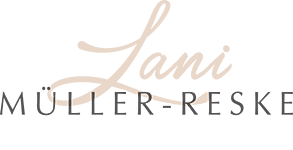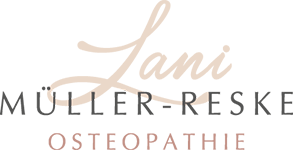Over the long term, you begin to lose sleep and start to feel the ill effects of sleep deprivation. Regular alcohol use before bedtime can have lasting effects on your sleep health. You may find yourself drowsy during the day, even after a long period of sleep. You may experience poor concentration during the day as the brain has never fully recharged and you become sleep deprived.
- Consuming alcohol may exacerbate obstructive sleep apnea and increase the severity of its symptoms.
- It does not appear that drinking causes obstructive sleep apnea, but the effects of excessive alcohol use can create conditions that lead to sleep apnea.
- This study followed 793 OSA patients, separating them into people that no longer drank and those that currently did.
- You can also visit us at Center for TMJ & Sleep Apnea to explore our snoring treatment options in Lee’s Summit.
Studies have shown that consuming alcohol can help people fall asleep faster. This is particularly true for people who have trouble falling or staying asleep. In Stage 3, muscles become fully relaxed and breathing rates and blood pressure rates drop as the body moves into REM sleep.
Alcohol Moderation for Sleep Apnea
And over the long term, AUD can have serious health consequences that compromise a person’s ability to exercise. Insomnia is a common sleep disorder characterized by difficulty falling asleep or staying asleep. Some people experience insomnia for short periods of time, particularly if they are experiencing stressful life events, while others experience long-term insomnia, sometimes without any attributable cause. A person who goes to sleep with a high blood alcohol content tends to initially experience increases in stage 3 sleep and decreases in REM sleep.
This Common Sleep Issue May Increase Your Risk of Alzheimer’s … – Prevention Magazine
This Common Sleep Issue May Increase Your Risk of Alzheimer’s ….
Posted: Sun, 21 May 2023 07:00:00 GMT [source]
Alcohol dependency can do more than interrupt your sleep — it can create widespread health problems. If you’re unhappy with your relationship with alcohol, consider looking into a treatment program. For the latter group, snoring is a sign that you’re not getting enough oxygen. Additionally, alcohol can prevent you from properly shifting through all of the necessary sleep stages — namely the REM stage.
Can You Drink Alcohol While Using a CPAP Machine?
Along with the epiglottis, your throat muscles may become more restricted thanks to the relaxation effects of drinking. Likewise, even your nasal passages might become swollen, further creating airflow restrictions. Furthermore, any effects of alcohol on sleep aren’t as beneficial when you consider the downsides of heavy alcohol consumption and poor sleep patterns.
If you’re drinking excessively, consider talking to your primary care provider about this. Excessive alcohol consumption might be a sign of a bigger problem. When you drink alcohol, your quality of sleep is very poor due to the lack of REM sleep. You’ll likely wake up throughout the night and feel fatigued in the morning. You might also experience night sweats, insomnia, or a hangover in the morning.
The Sleep Doctor
Fortunately, when it comes to alcohol recommendations, there’s a pretty small range. If you’re concerned about how alcohol affects eco sober house rating your health, you should speak with your doctor. But for any gender, keeping it to one drink a day is usually considered healthy.
Specifically, your epiglottis, the flap of cartilage that acts as a gateway between your throat and mouth, can be affected by alcohol. While low doses of alcohol may help insomnia, it comes with a few risks. One problem with using alcohol as a coping mechanism for insomnia is that its effects may be reduced over time, and tolerance might develop. You’re likely to increase your alcohol consumption to attempt to reap the same benefits when this happens. The second effect of alcohol on OSA is that it slows down breathing even more than normal.
Drinking alcohol, especially overconsumption, can induce sleep apnea and worsen any preexisting sleep disorders.
A third polysomnography was performed under CPAP after reintroduction of baclofen (50 mg b.i.d.) by the patient, showing reappearance of the CSAS (AHI 42.1/h). This case report illustrates the deleterious effect of baclofen on breathing physiology during sleep. Since it is typically prescribed off label at high doses to a population of patients potentially using other substances that inhibit the ventilatory drive, this possible adverse effect is a major concern. When considering the use of baclofen in patients with AUD, the potential for sleep-disordered breathing should be weighed and carefully monitored.
ES and JLB undertook study screening, data extraction, and quality assessment. JB and JLB provided critical revisions to the article, and all authors approved the final version of the article to be published. Under the influence of alcohol, you are much more susceptible to injury and accidents, and exercise is already an activity that carries inherent risk of injury.
Now, we’re not talking about anything sexy, arousal response actually refers to your body’s natural instinct to wake you up when you stop breathing at night. After a few alcoholic drinks, this could take a lot longer, which means you might stop breathing for longer periods of time. Drinking is a well-known risk factor for many forms of sleep-disordered breathing. If you have Central Sleep Apnea or Obstructive Sleep Apnea, understanding the complex relationship between alcohol and sleep apnea is critical. In this article, we will discuss the all-too-common complications that arise when sleep apnea and drinking alcohol are combined. Plus, we’ll share what you can do to reduce the impact that it has on your sleep apnea.
- The remaining five studies did not provide additional information about how alcohol was quantified [25], [28], [29], [42], [46].
- Polysomnography revealed a severe central SAS (CSAS) with an apnea-hypopnea index (AHI) of 81.6/h.
- David Repasky has been using CPAP treatment since 2017 and has first-hand experience with what it’s like to live with Sleep Apnea.
It’s a common misconception that drinking alcohol can help you sleep better. When you drink alcohol and fall asleep, your throat muscles relax and allow more air to pass through the mouth. This causes you to breathe through your mouth instead of your nose—a telltale sign of snoring and obstructive sleep apnea. The combination of these two effects can make it difficult for those with OSA to get restful sleep.
As alcohol consumption increases the chances of sleep disordered breathing, it follows that alcohol and sleep apnea are related contributors to an increase in heart attack. There is a connection between alcohol and sleep apnea, although doctors are not sure what it is. It does not appear that drinking causes obstructive sleep apnea, but the effects of excessive alcohol use can create conditions that lead to sleep apnea. Melatonin is a hormone produced by your body that helps regulate your sleep-wake cycle. Melatonin production increases when it gets dark and decreases when it’s light.
The worsening condition of the cardiac health in those with sleep apnea can be a contributing factor in the risk of stroke. People with sleep apnea who drink are five times more likely to get into a fatigue-related accident. This is not drunk driving – these accidents are from fatigue the following day. Continuous positive airway pressure https://rehabliving.net/ (CPAP) therapy is the leading treatment option for most people with Obstructive Sleep Apnea and mild to moderate Central Sleep Apnea. It involves delivering pressurized air through the airway and into the lungs. Our team of sleep specialists can help you get to the bottom of your sleepless nights, and help you get the sleep you need.


Hinterlasse einen Kommentar
Du musst angemeldet sein, um einen Kommentar schreiben zu können.